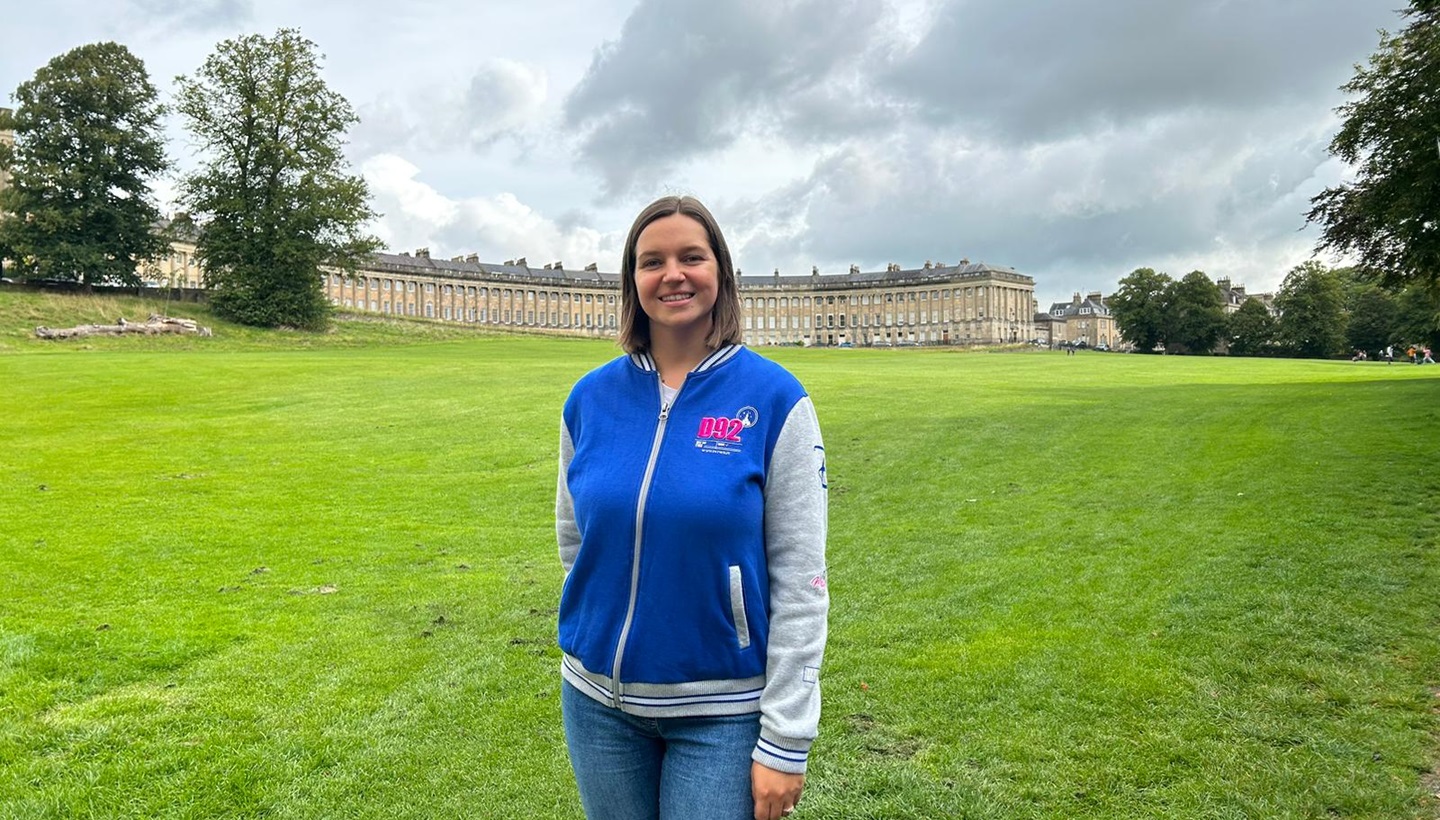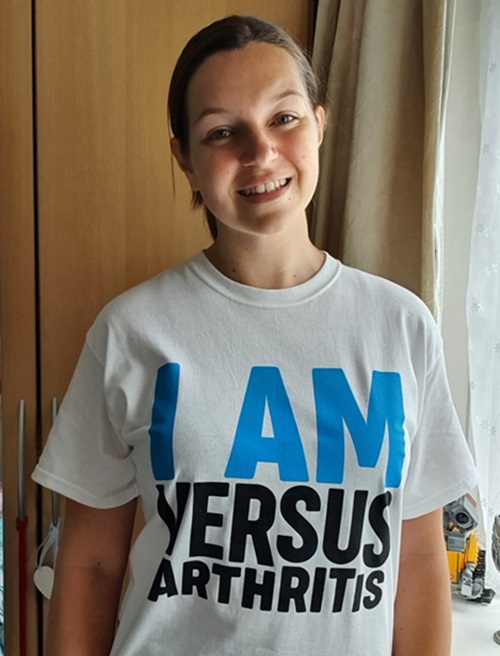“I find enjoyment in even the smallest of achievements.” Bethan’s tips on living with fibromyalgia
06 August 2024
Bethan, 30, started to experience knee pain when she was 13. As the symptoms progressed, she went for numerous tests, scans, and medical appointments.
Bethan was eventually diagnosed with fibromyalgia, 10 years after first showing symptoms.
Here, Bethan shares some advice about living with fibromyalgia that she has learnt since her diagnosis.
Managing pain
Fibromyalgia is a long-term condition that causes pain and tenderness all over your body. It’s thought to be caused by your nervous system in your brain and spine not being able to control or process pain signals from other parts of your body.
While the diagnosis was a relief to Bethan, she was given little help or information on how to manage her pain.
“The Doctor told me to do Tai Chi” Bethan says, “but nothing other than that.”
Bethan looked into different ways to manage her pain, including complementary and alternative treatments. These are commonly used by people who experience persistent pain, or whose symptoms aren’t fully controlled by conventional medication.
“I occasionally use a TENS machine when I have a pain caused by tension. It does feel strange when using it, but my muscles feel so much better afterwards.”
For Bethan, it is important to find a balance between being active and not pushing herself too far.
“Having time after a big meeting to recuperate yourself, do an enjoyable activity. Some things are worth the pain – if something is going to be really enjoyable it’ll still help my mental health.”
Learn more about exercising with arthritis
Maintain a strong social circle
It can be difficult to open up to people about chronic illnesses, particularly those which are invisible.
“The family and friend network has really changed for me,” Bethan says. “Even in 2020/21 I still really struggled with telling people about my condition. There are so many health conditions out there that people don’t know about. I can be really open now and discuss things with other people.”
Mental and physical health are two things which go hand in hand.
“Having a chronic illness can really impact your mental health,” she says. “When one is playing up it’s very likely the other will too.”
“You have to make sure your physical and mental health is your priority.”
It is good to have a strong support circle. Versus Arthritis, offers online support and services across the UK, making sure people have access to all the support and information they need to live well with their condition.
“It’s scary when you first reach out and finding that person you can trust. But there are lots of people out there who can support and be there to listen. If you can’t be honest with how you’re feeling, how can anyone else?”
Find help in your area
Be kind to yourself at work

Bethan worked in a physically demanding role which she struggled to manage due to fatigue.
“I wasn’t able to do anything on my days off,” she says. “I decided I needed a job at a desk.”
“If your workplace isn’t working for you, make a list and work out why. Then you can find out what roles suit you and will be best for your physical health.”
Fibromyalgia can lead to tiredness, fatigue and generally feeling like you have no energy. For Bethan, it all came down to knowing her limits so that she could live well within them.
“I like doing the 9-5 now and having weekends off to recover,” she says. “Sometimes you have to take that step and say right I need to move, this isn’t working.”
“You have to find that medium level to balance things out.”
Embrace who you are
Fibromyalgia can be challenging to diagnose, and research has been put into new ways to diagnose, treat and manage it. Versus Arthritis is currently working with a team at the University of Aberdeen on PACFiND, an exciting new study which hopes to propose and test a new cost-effective way to care for people living with fibromyalgia.
Bethan has found it important to be open with herself about the pain that she is in.
“Throughout my teenage years I went through a lot of denial,” Bethan says. “I talked myself into thinking everything was fine and that the pain was in my head.”
“I did cognitive behavioural therapy [CBT] a few years ago to come to terms with my health issues. They gave me lot of coping mechanisms.”
By being honest with herself about her condition, Bethan finds that she can achieve so much more.
It’s important, she says, to be “able to accept the condition and that my health will fluctuate. You can get out of that continuous cycle of overdoing it and being stuck in bed.”
“When you’re in pain you shouldn’t hide it. You can be worried about things causing a flare up. You’re still a human being and you need to go out and do things. Pacing yourself and having that time after to recover from it is important.”
Don’t push yourself

Bethan tries not to tire herself out by cramming too much into a day.
“Before I used to be like ‘I have to achieve ten things in a day’. Now I know it isn’t about that. It’s about finding the activities you can still find pleasure in.”
If she is feeling more pain than she usually would, then she “can do things that help them be less intense, like reading a book.”
“Even writing down how I’m feeling helps get it out of my head. I can think through my feelings and work out how to improve.”
“Even on the days when I’m really bad, I’ll still walk to the end of the garden and back. I find enjoyment in even the smallest of achievements. It really helps me to feel good about myself.”
We’re here whenever you need us
- If you would like to talk to someone, you can call our free helpline on 0800 5200 520
- Chat to our Arthritis Virtual Assistant
- Join our online community
- Stay in touch and follow us on Twitter/X, Facebook and Instagram